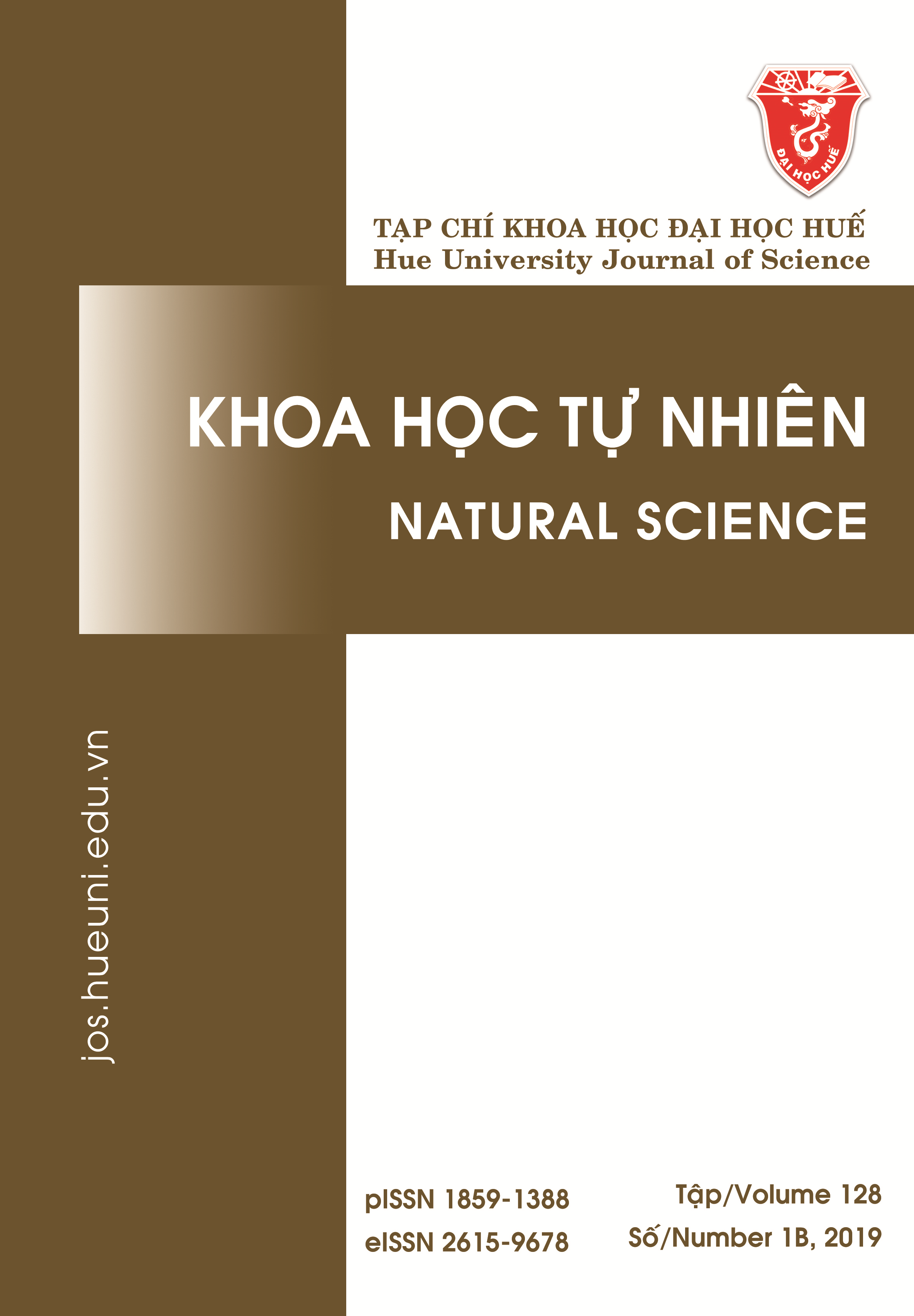Abstract
The Khe Phen granite quarry located in Huong Tra district (Thua Thien Hue province) has been confirmed as a part of the Ba Na granitoid complex (G/K2bn), mostly composed of two-mica granite and porphyritic granite. Field survey data show that the granites here are cut across by five distinct narrow dikes (about 50–70 cm wide), including granite pegmatite, granite aplite, aplite, granodiorite, and lamprophyre. The mineral compositions of the granite pegmatite and aplite dikes are similar to those of the host granite, which is mainly comprised of quartz (27–35%), orthoclase (45–58%), plagioclase (4–15%), biotite (1–3%), and a few opaque minerals. Meanwhile, the granodiorite and lamprophyre dikes are melanocratic and compositionally much more mafic, particularly lamprophyre, evidenced by a presence of hornblende (50–55%), plagioclase (33–40%), quartz (3–15%), calcite (5–17%), etc. The origin and emplacement age of the latter dikes have not been reported so far and thus, are needed for further studies based on geochemical and isotopic data.
References
- Marshak S. Essentials of Geology, Third Edition. W. W. Norton & Company; 2009.
- Carmichael ISE, Turner FJ, Verhoogen J. Igneous petrology. McGraw– Hill Book Company. Printed in the United States of America; 1974.
- David CMD, Francis JND. Age and tectonic implications of Paleoproterozoic mafic dyke swarms for the origin of 2.2 Ga enriched lithosphere beneath the Ungava Peninsula, Canada. Precambrian Research. 2009;174(1–2):163–180.
- Kirby GA. The petrology and geochemistry of dikes of the Lizard Ophiolite Complex. Cornwall. Journal of the Geological Society. 1984;141:53–59.
- Rao NVC, Burgess R, Nanda P, Choudhary AK, Sahoo S, Lehmann B, Chahong N. Petrology, 40Ar/39Ar age, Sr-Nd isotopic systematics, and geodynamic significances of an ultrapotassic (lamproitic) dyke with affinities to kamafugite from the easternmost margin of the Bastar Craton, India. Mineralogy and Petrology. 2015;110 (2–3):26929.
- Trang NV. Geological map of Vietnam scale 1 :200.000, the Hướng Hóa – Huế – Đà Nẵng sheet. Department of Geology and Minerals of Vietnam. Hanoi; 1995 (in Vietnamese).
- General Department of Geology and Minerals of Vietnam. Appendix Book for Geology Units of Vietnam; 2000. Website: http://idm.gov.vn/nguon_luc/Xuat_ban/Anpham/Tracuu_PVDC/B2.htm#BaNa
- Tham HH, Thuy NT. Overview of typical structure and texture of intrusive rocks in Thua Thien Hue area. Hue University Journal of Science. 2010;39:113–126 (in Vietnamese).
- Thuc DD, Trung H. Geology of Vietnam, Part II. Magma. General Department of Geology and Minerals of Vietnam. Hanoi; 1995. (in Vietnamese)
- Anh PL, Hoa TT, Vladimirov AG, Anh TT. Formation conditions of the Hai Van, Ba Na-typed granitoids using updated data of trace elements and isotopes. Journal of Earth Sciences. 1995;17(4):151–155.(in Vietnamese)
- Minh NT. Results of age analysis for the Ba Na granites (Central Vietnam) using Rb-Sr isotopes. Journal of Geology. 2003;A.(in Vietnamese).
- Minh NT. Determining emplacement age of the Ba Na block corresponding to the Indochina tectonic stage using U-Pb isotopic analysis. Journal of Geology. 2005;A287.(in Vietnamese).
- Phuc LD. Petrographic, mineral, geochemical characteristics of Ba Na granitoids. Science and Technology development. 2009;12(07):58–71 (in Vietnamese).

This work is licensed under a Creative Commons Attribution-ShareAlike 4.0 International License.
Copyright (c) 2019 Array




